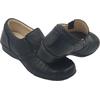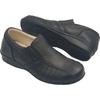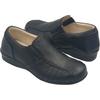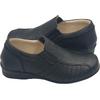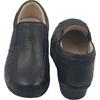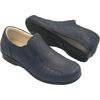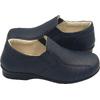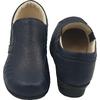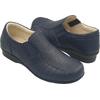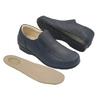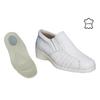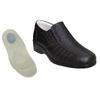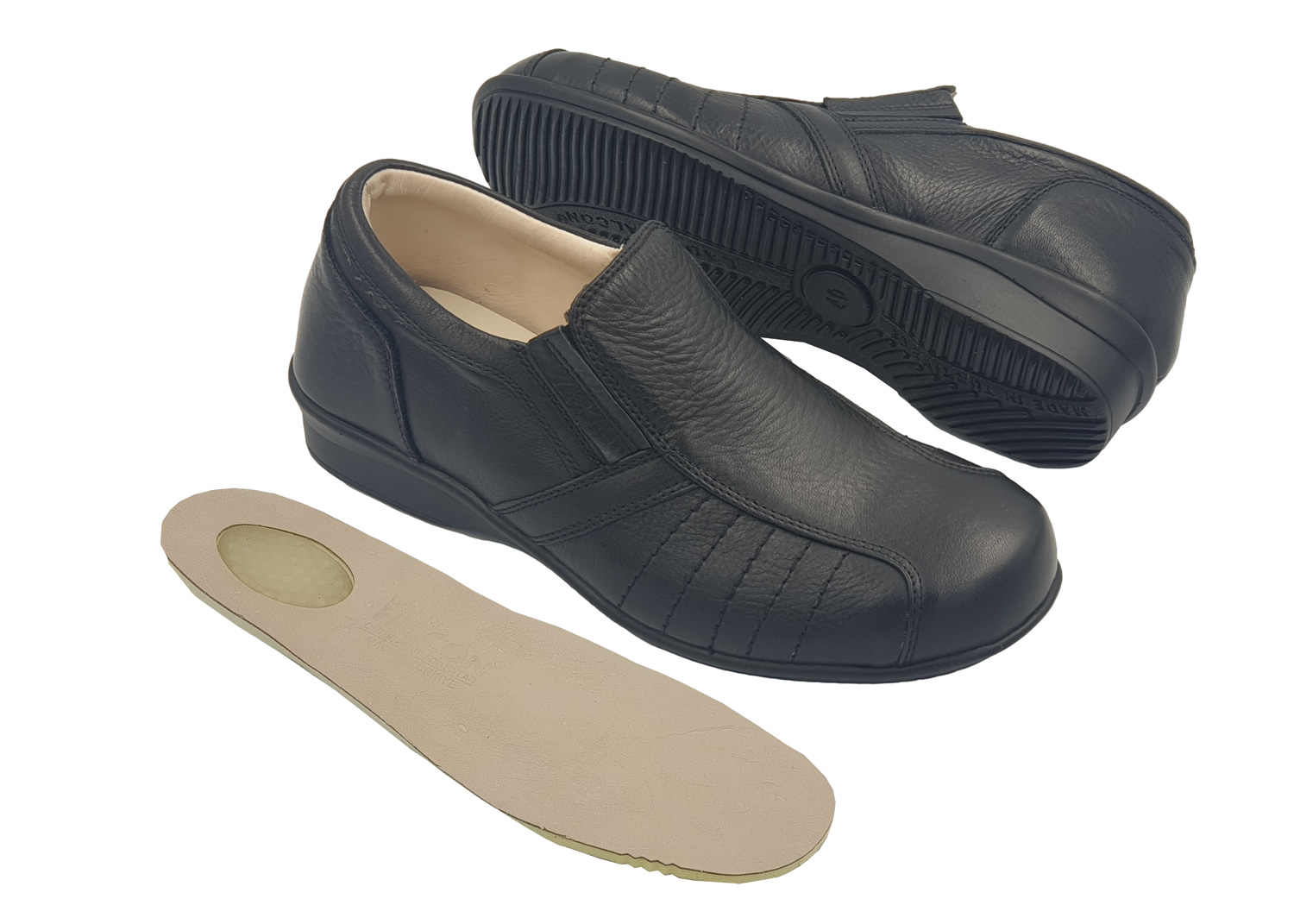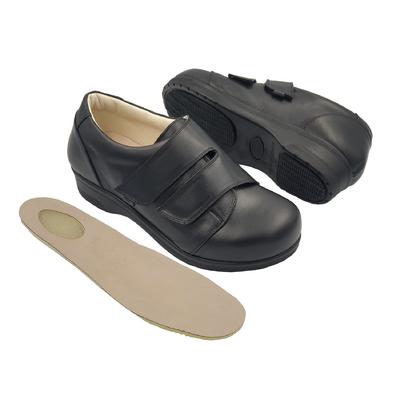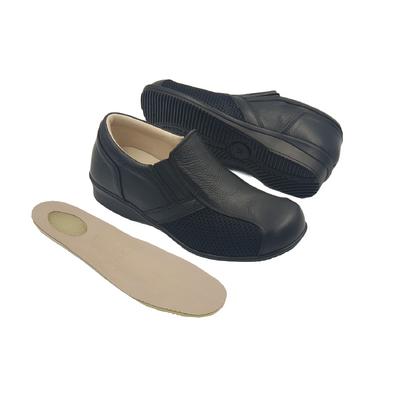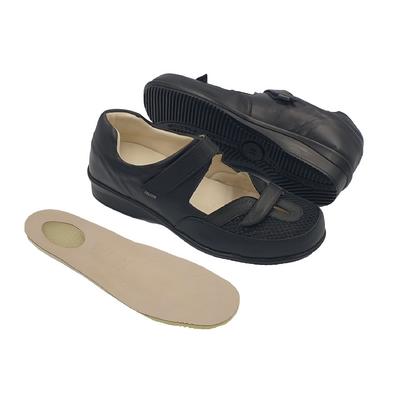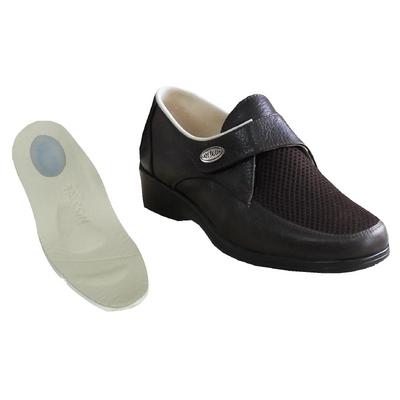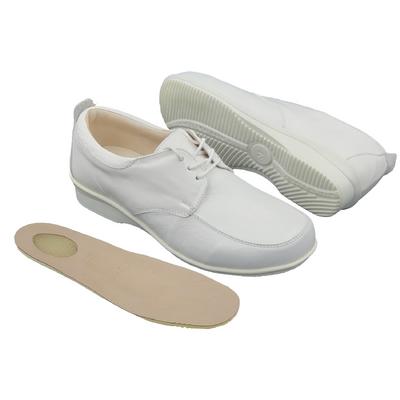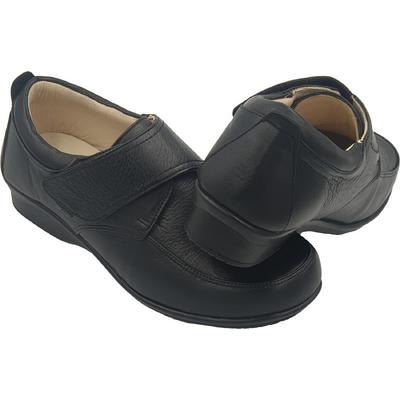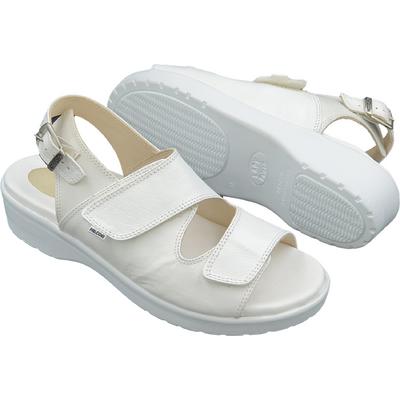Orthopedic Women's Shoes for Heel Pains EPTA04
Product code : EPTA-04
Colours
|
Womens shoe sizes
|
TELEFONDA SİPARİŞ VER
+90 212 671 20 21
Tıklayın, telefonunuzu bırakın. Sizi arayalım.
Orthopedic Women's Shoes for Heel Pains EPTA04
► Best shoes for heel pains
► First quality soft genuine leather
► Best silicone support heel cushion
► Women’s shoe for heel pain size: 35-36-37-38-39-40-41-42-43
► Seasonal models.
► Antibacterial and don’t sweat
► Suitable for women’s foot anatomy.
► Best comfortable shoes for heel pains
► Increase the quality of your life and walk
► PU outsole
► Anti-slip outsole design
► Colours: Black, brown, white and navy
► Model code: EPTA-04
► Made in Türkiye
► Brand: Ladyfalcon
► This model is perfect for 4 season
► Wide toe area
► No stitches or stitches that are used very little
► Memory sponge
► The height of the toe part of the polyurethane sole is 1.50 cm and the heel height is 3.00 cm.
► Velcro shoes model
Benefits of Women's Shoes for Heel Pains ;
Women's heel pains shoes designed for individuals with plantar fasciitis offer numerous benefits to help alleviate discomfort and provide proper support. Plantar fasciitis is a condition characterized by inflammation and pain in the plantar fascia, a band of tissue running along the bottom of the foot. Here are the benefits of wearing shoes specifically designed for plantar fasciitis:
-
Arch Support: Plantar fasciitis shoes typically feature robust arch support. This helps maintain the natural arch of the foot and reduces strain on the plantar fascia, leading to pain relief and improved comfort.
-
Cushioning: These shoes come with cushioned insoles that provide extra shock absorption and comfort. The cushioning helps minimize impact on the heel and forefoot, reducing discomfort associated with plantar fasciitis.
-
Heel Support: Many plantar fasciitis shoes have contoured heel cups that cradle the heel. This design enhances stability and reduces strain on the plantar fascia and heel, making walking more comfortable.
-
Removable Insoles: Some plantar fasciitis shoes offer removable insoles, providing the option to use custom orthotic inserts for personalized support and comfort.
-
Wide Toe Box: A roomy toe box in these shoes allows the toes to spread naturally, reducing pressure on the front of the foot and enhancing overall comfort.
-
Sturdy Outsoles: The outsoles of plantar fasciitis shoes are designed to provide stability and support while walking. They often feature shock-absorbing properties to reduce the impact on the feet.
-
Motion Control: Many of these shoes are engineered with motion control features, helping individuals maintain a stable gait and minimizing excessive pronation or supination, which can exacerbate foot pain.
-
Lightweight and Breathable: Women shoes for heel pians relief are typically constructed from lightweight, breathable materials to keep feet comfortable, even during extended wear. Good ventilation helps prevent excessive sweating and discomfort.
-
Versatility: These shoes are suitable for various occasions, including work, casual outings, and exercise. They can provide the necessary comfort and support throughout various daily activities.
-
Pain Relief: The combination of arch support, cushioning, heel stability, and motion control provided by these shoes can contribute to pain relief for individuals with plantar fasciitis, allowing for increased mobility and comfort.
-
Prevention: Wearing women shoes for heel pain can also help prevent the development of the condition, especially for individuals at risk due to factors like flat feet or excessive pronation.
It's important to note that the effectiveness of heel pain shoes can vary from person to person. They should be used as part of a comprehensive treatment plan that may include exercises, stretching, and medical advice from a healthcare professional. Individuals with plantar fasciitis should consult with a podiatrist or orthopedic specialist to determine the most suitable footwear and treatment options based on their specific condition.
How To Measure Your Foot?
* Look at ladies shoes for heel pain field in the table below.
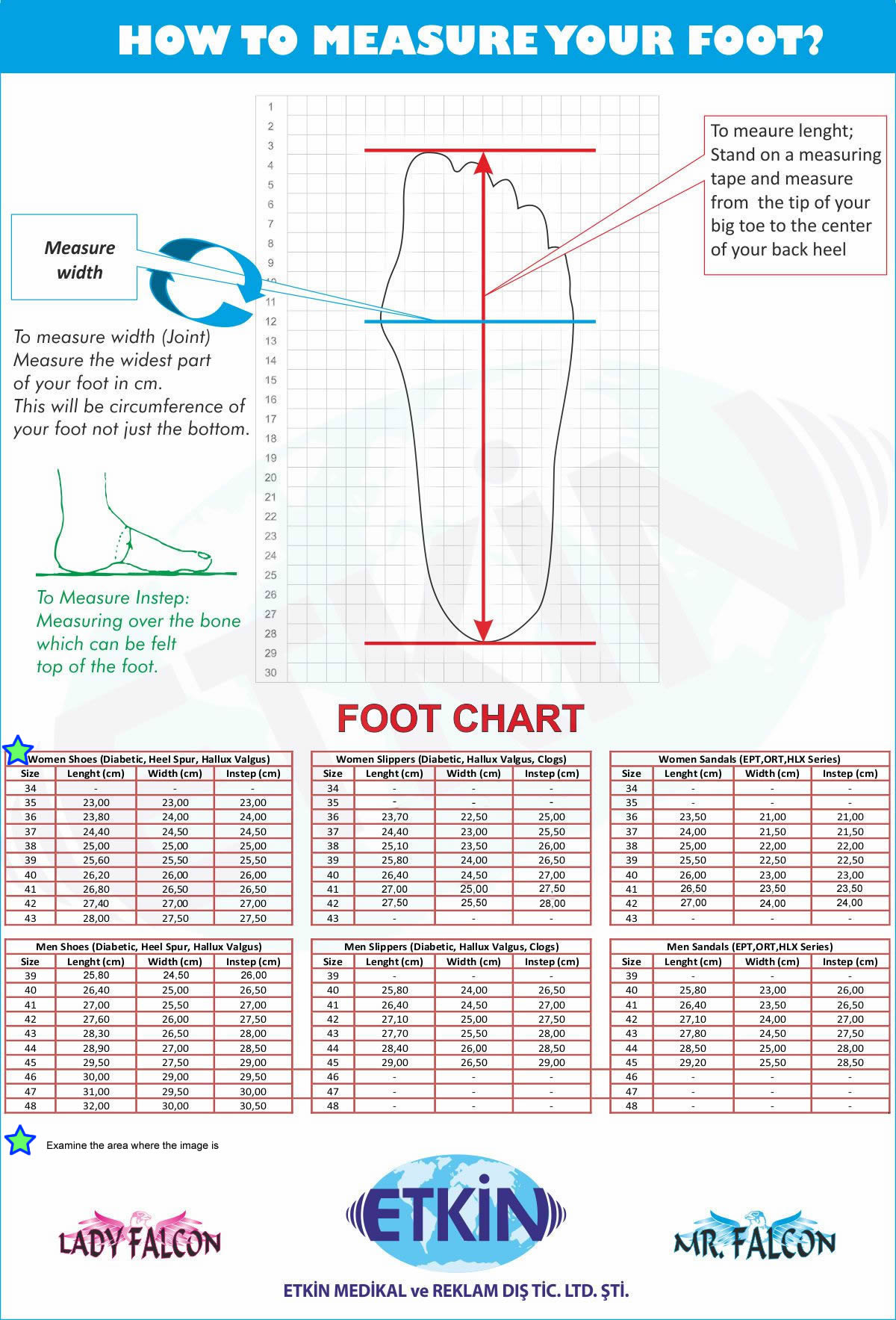
What is plantar fasciitis ?
Plantar fasciitis is a common foot condition that involves inflammation and irritation of the plantar fascia, a thick band of tissue that runs along the bottom of the foot, connecting the heel bone to the toes. The plantar fascia serves as a shock absorber and supports the arch of the foot, helping to maintain its structural integrity during activities like walking, running, and standing.
When the plantar fascia is subjected to excessive stress, it can develop small tears or become inflamed. This condition is known as plantar fasciitis. It often causes sharp or stabbing heel pain, especially in the morning when taking the first steps after waking up or after prolonged periods of rest. The pain typically subsides as the foot warms up and becomes more active, but it may return after prolonged activity or standing.
Several factors can contribute to the development of plantar fasciitis:
» Overuse or Activity: Engaging in activities that place repetitive stress on the feet, such as running, dancing, or standing for long periods, can strain the plantar fascia and lead to inflammation.
» Foot Mechanics: Flat feet, high arches, or abnormal walking patterns can alter the distribution of weight on the feet, putting additional stress on the plantar fascia.
» Obesity: Excess body weight can increase the load on the feet and contribute to the development of plantar fasciitis.
» Footwear: Wearing shoes with inadequate arch support, poor cushioning, or improper fit can contribute to foot discomfort and strain on the plantar fascia.
» Age: Plantar fasciitis is more common in middle-aged individuals, although it can affect people of all ages.
» Tight Muscles: Tight calf muscles and Achilles tendons can affect the flexibility of the foot and contribute to plantar fasciitis.
» Occupational Factors: Jobs that require prolonged standing or walking on hard surfaces can increase the risk of developing this condition.
Treatment for plantar fasciitis usually involves a combination of approaches:
» Rest and Ice: Resting the foot and applying ice can help reduce inflammation and alleviate pain.
» Stretching Exercises: Stretching the calf muscles and Achilles tendons can improve foot flexibility and relieve strain on the plantar fascia.
» Orthotic Inserts: Custom or over-the-counter orthotic inserts can provide arch support and cushioning to reduce strain on the plantar fascia.
» Proper Footwear: Wearing shoes with good arch support and cushioning can help prevent exacerbation of symptoms.
» Physical Therapy: A physical therapist can guide you through exercises to strengthen the foot and improve its mechanics.
» Medications: Nonsteroidal anti-inflammatory drugs (NSAIDs) can help manage pain and inflammation.
» Night Splints: Wearing a splint at night can help keep the foot in a dorsiflexed position, which can alleviate morning pain.
» Corticosteroid Injections: In some cases, corticosteroid injections may be used to reduce inflammation and pain.
» Surgery: Surgery is rarely necessary and is considered only when other treatments have not provided relief.
If you're experiencing persistent foot pain, it's important to consult a healthcare professional for an accurate diagnosis and appropriate treatment recommendations.
There are two main types of heel spurs:
There are two main types of heel spurs:
» Plantar Heel Spurs: These are the most common type of heel spurs. They form on the bottom of the heel bone (calcaneus) and are often associated with plantar fasciitis. Plantar fasciitis is a condition in which the plantar fascia, a thick band of tissue that connects the heel bone to the toes, becomes inflamed. The plantar fascia pulls on the heel bone, and over time, this repetitive stress can lead to the formation of a bony protrusion or spur.
» Posterior Heel Spurs: These spurs form on the back of the heel bone, where the Achilles tendon attaches. They are often associated with Achilles tendinitis, a condition characterized by inflammation of the Achilles tendon. The constant tension and stress on the Achilles tendon can lead to the development of a bony spur at its insertion point on the heel bone.
It's important to note that not everyone with plantar fasciitis or Achilles tendinitis will develop heel spurs, and not all heel pain is caused by spurs. Many cases of heel pain can be effectively managed with conservative treatments such as stretching, physical therapy, orthotic inserts, proper footwear, and anti-inflammatory medications. If you're experiencing persistent heel pain, it's recommended to consult a medical professional for an accurate diagnosis and appropriate treatment plan.
Check out the products / categories below that we think might be of interest to you
Can I shop safely on your site?
All purchases you make through https://www.medicalfootwear.net use the latest technologies and the best service provider for your safety.
Once you enter your credit card number under SSL security, you can be sure that no one will have access to this information. No one can view or access your information except you. The information about your number is encrypted and sent to your bank if you enter your credit card number. Your information can not be accessed by third parties, including https://www.medicalfootwear.net in this sense. Your card information is only known and protected by you and your bank.
Product price : 209.00 USD
When are orders shipped?
Products are generally shipped within 1-5 business days.
When will my order be delivered?
Products shipped are usually delivered to your address within 3-7 business days.
We ship with Fedex, DHL, UPS adn TNT, which are the leading cargo companies of express courier transportation. If you have a different request, please contact our company.
Where can I track my order?
You can track your order in the “my orders” section on our website. In addition, you can track the shipment directly by clicking on the link that is sent to your email address.
I cannot access the tracking information for my order. What am I supposed to do?
You need to contact us directly or through our support department if you encounter such a problem.
Which regions do you ship to?
You can shop online from anywhere in the world.
Safe Shopping
Free Shipping
Shipping Within 1-5 Days
Best Quality Products
These Products May Be Interested
Womens Shoes for Heel Spurs EPTA02
209.00 USDPlantar Fasciitis Shoes For Women EPTA01
209.00 USD
Best Selling Products
Plantar Fasciitis Shoes For Women EPTA01
209.00 USDWomens Shoes for Heel Spurs EPTA02
209.00 USD


